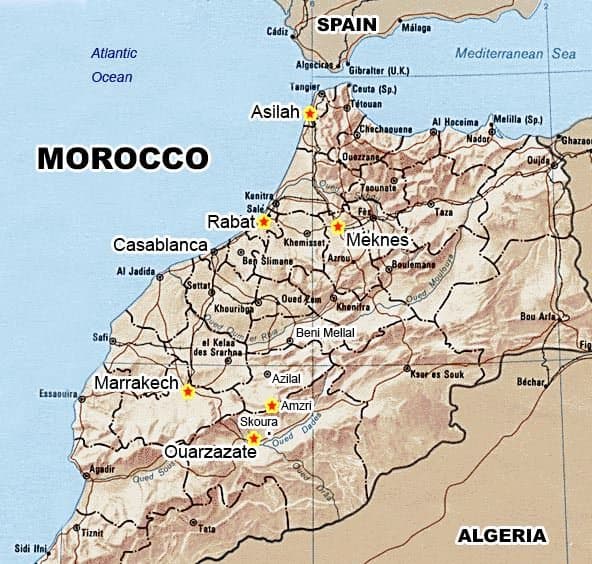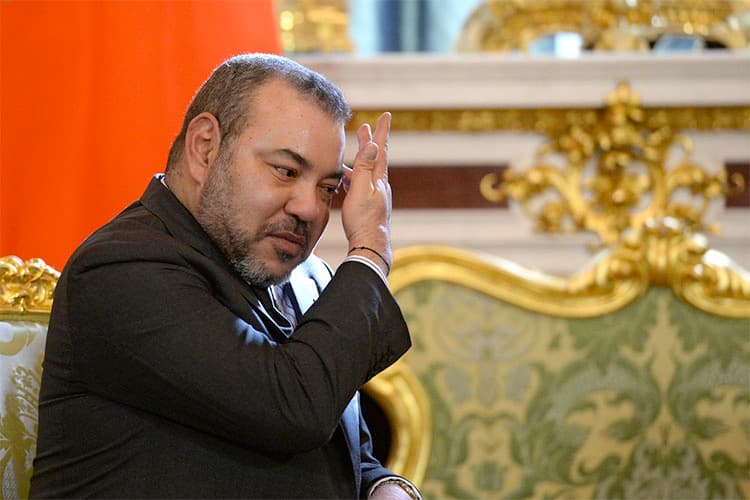SPAIN - MOROCCO | Bilateral negotiations to control western sahara's airspace
Morocco, Spain Start Negotiations over Western Sahara Airspace
https://www.moroccoworldnews.com/2023/03/354639/morocco-spain-start-negotiations-over-western-sahara-airspace
According to the UN’s International Civil Aviation Organization (ICAO), the airspace includes the territory of Morocco’s southern provinces as well as part of the Atlantic ocean, including the Canary Islands.
It includes several airports in Morocco’s southern regions, such as Dakhla, Laayoune, and Es-Smara.
The airspace, which has been under Spanish control, was a topic of discussion between Morocco’s King Mohammed VI and Spain’s Head of Government Pedro Sanchez, when the latter visited Rabat in April 2022.
The airspace agreement is one of the many steps being taken by the two countries to strengthen ties following a year of diplomatic tensions between 2021 and 2022.
Spain's Top Diplomat 'Pleased' with Results of Cooperation with Morocco
The Spain-Morocco bilateral cooperation results, since the adoption of the Joint Declaration of April 7, 2022, are "very positive," said Spanish Foreign Minister José Manuel Albares on Friday.
"We are pleased with the very positive results," said the Minister of Foreign Affairs, European Union and Cooperation in an interview with Spanish newspaper Ara. "We have laid the foundations of a relationship based on new foundations."
"We have trade relations that are at historic highs, with 20 billion euros of bilateral trade and 12 billion euros of Spanish exports to Morocco," he said, adding that about 1,100 Spanish companies are present in Morocco.
The Moroccan Makhzen Regime Is Looking For Outlets To Circumvent The European Justice
https://www.echoroukonline.com/the-moroccan-makhzen-regime-is-looking-for-outlets-to-circumvent-the-european-justice
The Kingdom of Morocco is working hard to circumvent the European Union’s decision not to renew the fisheries agreement that expired almost a month ago (July 17) by involving some European countries in what is forbidden by concluding bilateral agreements, and Spain has chosen for this illegal act.
In this regard, Morocco has begun negotiations with Spain to allow Spanish fishermen to fish in the territorial waters of occupied Western Sahara, who stopped their activity almost a month ago, pending the final decision of the Court of Justice of the European Union, which will uphold the appealed decision, according to legal experts. This information was reported by the Spanish newspaper “Espanyol”.
The Moroccan and Spanish parties are aware of the illegality of concluding a bilateral agreement before the ruling of the European Court of Justice, which was appealed by the Moroccan regime and the European Commission, which, as is well known, ruled the illegality of the fisheries agreement between Rabat and Brussels because it was concluded without consulting the holder of the exclusive right, which is the Polisario Front. the sole and legitimate representative of the Sahrawi people.
Read more.
Western Sahara Hostilities: Occupation Economy At Risk
The Moroccan army has come under attack in the Western Sahara, a disputed territory it occupies since 1975. They are involved in skirmishes against the armed wing of the Polisario Front, the land’s national liberation organization.The Moroccan military has also responded by attacking Sahrawis across the desert using drones.
https://www.forbes.com/sites/eliasferrerbreda/2024/01/06/western-sahara-hostilites-occupation-economy-at-risk/?sh=51e79e367ab5
The Western Sahara is a “territory in the process of decolonization” according to the U.N. It was a Spanish colony until 1975, but instead of becoming independent it was occupied by Morocco—and for a brief period between 1975 and 1979, the southern third was controlled by Mauritania.
Morocco is working to build large renewables plants, mostly for wind and solar, to export the energy into Europe. Its electrical grid is connected to Spain under the Strait of Gibraltar, and thus to much of the European Union.
Renewables generation is also intended to personally benefit Morocco’s ruler, King Mohammed VI since the electricity firm, Nareva, is owned by him and the royal family through the holding company Al Mada.
An escalation in the Western Sahara could have broad economic implications, especially if the “useful triangle” is targeted. Already, sabotage by the national liberation movement has disrupted phosphate and iron mining.

